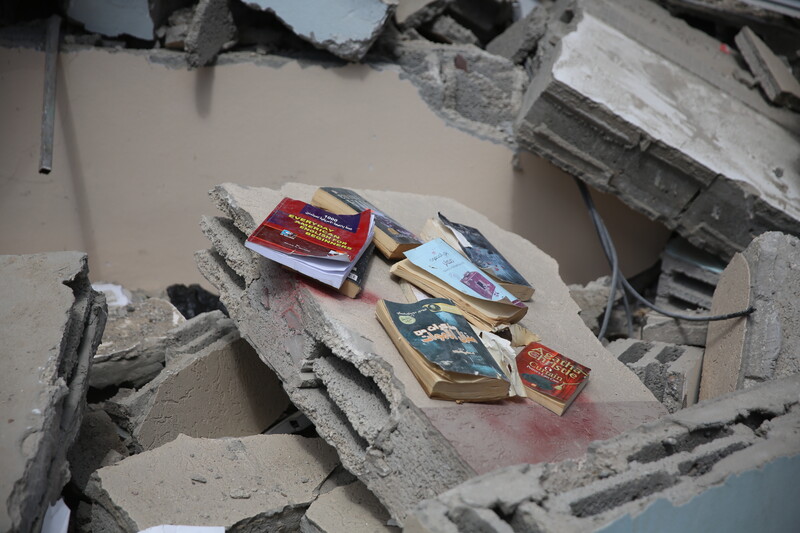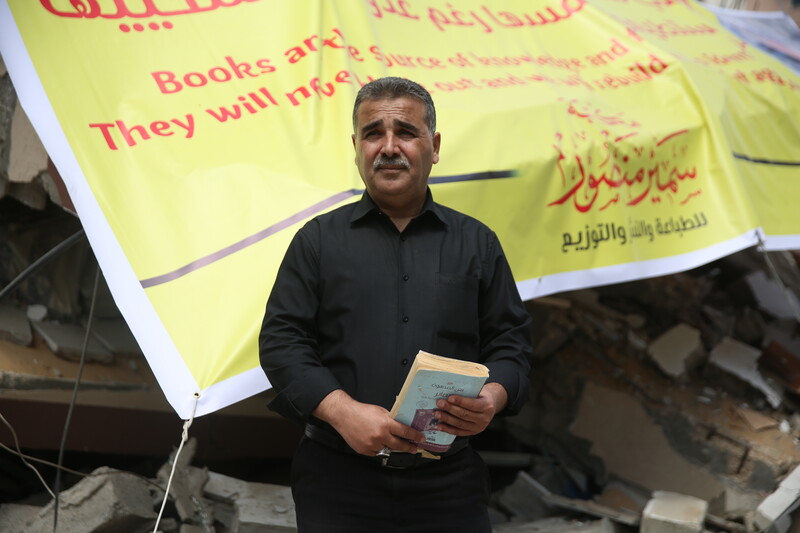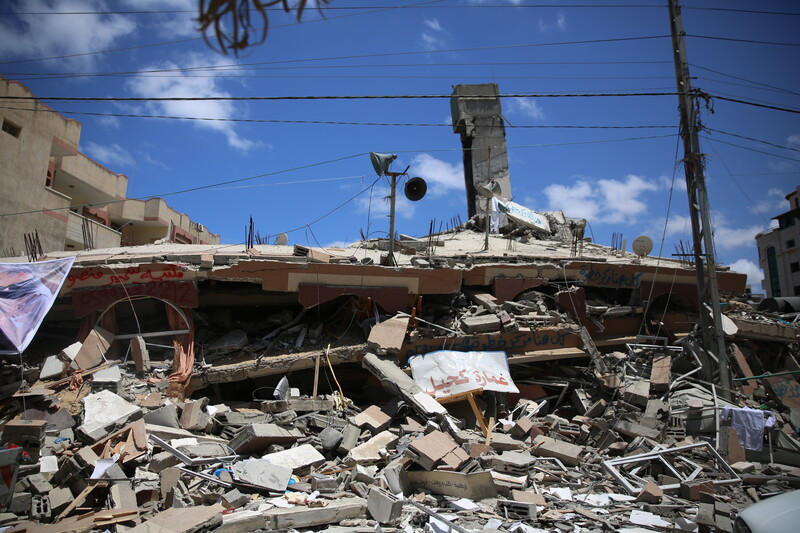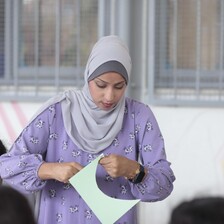The Electronic Intifada 2 June 2021

Samir Mansour had amassed a collection of around 100,000 books.
Samir Mansour spent more than 20 years developing a haven for readers in Gaza City.
An estimated 100,000 books could be found in his library. Located near three universities, it was a vital resource for large numbers of students.
The haven was destroyed swiftly and brutally during Israel’s latest major attack on Gaza.
Today, a sign with a defiant message has been placed outside the remains of the Kuhail building where Mansour ran his library, bookstore and publishing firm. The sign notes that books are the source of knowledge and help to shape people’s identity.
The ideas contained in books cannot be erased by bombs and warplanes. They will live on.
“This library is my whole life,” said Mansour. “I was shocked when the Israeli occupation decided to bomb the building. It felt like I myself had been destroyed.”
“The library benefited all members of society,” he added. “It is an independent library that has nothing to do with politics. I did not expect for a moment that it would be bombed in this way. This means that Israel wants to destroy our identity and culture in Gaza.”
“Beautiful and useful”
Maryam Riyad, a history student at Al-Aqsa University in Gaza, described the library as a “constant companion.”
“There is no student at our university who hasn’t been in this library,” she said. “It was both beautiful and useful. I have so many memories from there.”
Khalid Omar, an engineering student at Al-Azhar University, immersed himself in literature thanks to the library.
“I would borrow a novel or a collection of poetry,” he said. “And I would absorb these books. When I saw thousands of books destroyed and lying on the ground, I felt that my own heart had been destroyed. Israel does not respect books and culture. That’s why it has bombed a library.”

Samir Mansour published books by authors based in Gaza.
As well as running the library and bookstore, Mansour’s firm published books by local authors.
The firm worked with more than 150 writers, as well as publishing translations of European literature.
Among its bestsellers was an Arabic translation of Les Misérables, the French historical novel by Victor Hugo. It was the only firm in Gaza to print copies of the Quran.
Mansour has calculated that he lost at least $700,000 worth of books and equipment as a result of the bombing.
Another bookstore – owned by Shaban Aslim – was destroyed during last month’s offensive against Gaza.
Revulsion
Israel has a history of attacking Palestinian arts and culture.
In 2018, for example, Israel bombed the Said al-Mishal Cultural Center. That five-story building hosted Gaza’s main theater, as well as dance classes, poetry readings and exhibitions.
During last month’s attack, Israel also bombed the Ghazi al-Shawa building hosting the Gaza offices of Open Screenplay. A Canadian firm, Open Screenplay has developed technology to assist budding movie writers.
While none of Open Screenplay’s staff were harmed, the firm reported that at least four people were killed when the building was bombed.
Another facility attacked by Israel was the recording studio Mashareq.
It was in that studio that the popular singer Mohammed Assaf – best known for winning the TV contest Arab Idol – made his first recordings.
The Basma Society for Culture and Arts – which offers drama programs for children and women – was damaged, too.

Samir Mansour’s library was one of 44 cultural institutions destroyed or damaged during Israel’s latest attack on Gaza.
The bombing of Samir Mansour’s project has caused widespread revulsion.
Palestinians in the Sheikh Jarrah neighborhood of occupied East Jerusalem quickly demonstrated their support for Mansour by opening a bookstore named in his honor.
The act of solidarity is poignant given that Sheikh Jarrah has become synonymous with ongoing efforts by Israel to force Palestinians out of their homes.
Muhammad al-Sharif from Gaza’s culture ministry noted that Samir Mansour’s library was one of 44 cultural institutions destroyed or damaged by Israel last month.More than $3 million worth of damage was inflicted on Gaza’s cultural sector, the ministry has calculated.
“Israel believes that destroying our cultural institutions will make us forget our cause,” al-Sharif said. “But that will not happen. We will keep on reading.”
Ruwaida Amer is a journalist based in Gaza.





